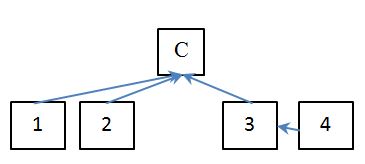The Argument: The USA and the UN
Some foreign publications have been critical of the United States’ failure to pay its U.N. membership fees. I believe that the United States is entirely justified in this. At least twice, the Soviets have withheld theirs when they did not approve of U.N. policies (peace actions in Egypt and what is now Zaire). The foreign press did not get very worked up about it. U.N. members have constantly found fault with the U.S. They abuse us on the one hand and expect handouts on the other. Parents of adolescents face similar problems. I personally never insist on respect from anybody, but those who did not give it to me need not bother asking me for any financial help. (Adapted from a Letter to the Editor, Publication located in the USA)
The Argument Representation in Standard Form
- Members of the UN constantly find fault with the United States while getting away with refraining from paying the Soviets.
- The foreign press deliberately criticizes only the United States.
- The UN does not respect the United States properly and still expects stable assistance from the country.
- Parents of teenagers act in the same way as the UN concerning their children.
Therefore, The US is doing the right by refusing to pay membership dues to the UN.
An Argument Map Diagram

An Evaluation of the Whole Argument
The premises are not sufficient to justify the conclusion. The argument suggests that showing more respect for the US and criticizing other countries, which the author believes is justified, will allow the UN to expect US support. However, this is only partially true; among other things, it may depend on the US domestic budget crisis. Moreover, this may be the result of the policy of Congress and the desire to leave the UN. If the show of respect from the UN does not influence the outcome of political decisions based on the country’s financial situation, which led to the need to refrain from paying UN membership dues, then support for the withdrawal will be undermined.
The author concludes that it is not worth asking for financial assistance from those they did not show respect to. The statement does not have a good reason to accept it, as the derivation is not supported. It is necessary to discuss the main questions that arose after reading the argument, namely:
- Reliability of the argument
- Sampling bias
- Availability sampling
The first and foremost problem with the argument is that the author chooses dubious support. They refer to “some foreign publications” and “foreign press.” In addition, it is complicated to trace the connection within the statement since the author does not follow the sequence of argumentation. They claim that “They abuse us,” so it is unclear who the author is referring to the press or the UN.
The argument does not present any reliable, independent source to confirm the integrity of the premises. In order for the statement to be substantiated, it is necessary to provide evidence from other sources. It will allow us to identify and understand why the US decided not to pay membership dues to the UN and will confirm the argument, making it credible. In addition, the author should formulate the sequence of thoughts or statements being expressed so that the opponent can correctly interpret the idea.
The next problem is the unreasonable and biased choice of comparisons. It is based on the premise that it is possible to justify US action. According to the author, all the negativity is directed only at the USA. At the same time, neither the organization nor the press pays attention to the actions of the USSR, which refrains from membership fees and does not approve of UN policy.
The author should consider that the amount of contributions to the regular or operational budget is calculated based on the country’s gross national product, population, debt burden, and more. In addition, the author compares the UN’s expectation that the United States will fulfill its duty as a participating country with parents’ behavior towards their teenage children. That is irrelevant as it says absolutely nothing about why the US chose not to pay the dues. Thus, for the argument to be successful, premises must be sufficient to establish the conclusion.
Another problem with the argument is that the conclusion is not supported, as the premises are based on the author’s personal experience, which is a biased sample of one. The author concludes his argument based on the cases they have experienced and remembered, equating it with the knowledge of the country. In addition, the fact that the author does not provide financial support to those who have shown them disrespect does not say anything about the potential reasons for the US not paying the UN dues. It is important to note that the transition in the argument to a person does not carry enough weight to be considered true. In addition, the premises the author cites in support of the stated conclusion do not prove that the US should not pay the money. For the argument to be successful, the author must reconsider the premises’ sufficiency based on personal experience.